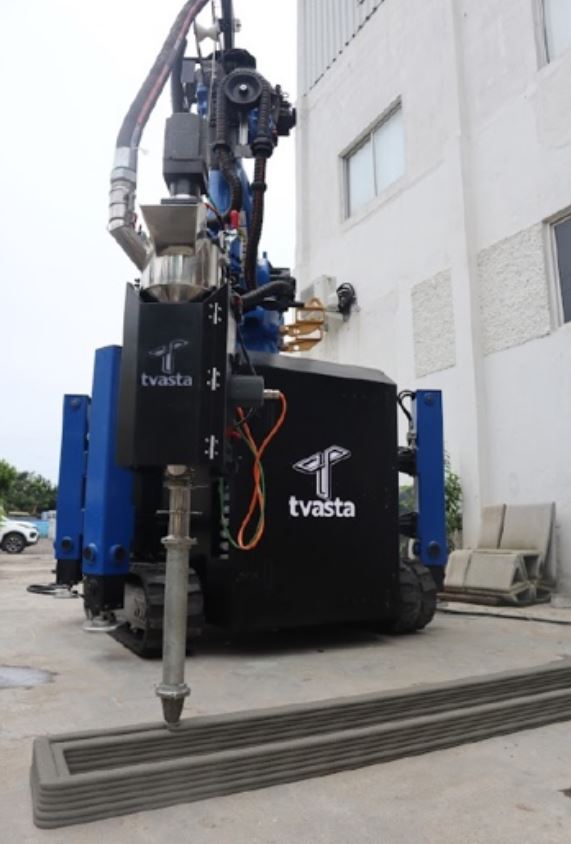Plans call to build 10 affordable homes across Virginia with the printer by 2026
Virginia Housing has announced a $1.1 million Community Innovation Demonstrations grant to the Virginia Center for Housing Research at Virginia Tech to purchase an advanced, mobile 3D construction printer. Grant funds also will enable 3D Concrete Printing (3DCP) tests, training, research and partnerships to print 10 affordable homes across Virginia by 2026.
A mobile, cost–effective 3D construction printer to save time and money was demonstrated for the first time in the Commonwealth at the Virginia Governor’s Housing conference this week. The machine was a Tvasta SIRA RC20 is a robotic crawler arm–based 3D concrete printer featuring:
• Robotic Arm Design: Unlike larger gantry–based systems,
the SIRA RC20 uses a multi–axial robotic arm, offering greater
flexibility and precision.
• High Payload Capacity: Engineered to handle heavy
components, the SIRA RC20 can produce large–scale
construction elements.
• Customizable Motion Systems: The printer offers tailored
motion systems to meet specific project requirements,
enhancing versatility for different types of projects.
• Eco–Friendly Design: This system minimizes material waste
and can use low–carbon mixes and recycled concrete mixes to
create energy–efficient structures.
Refined from bulky, larger systems, the nearly 11–foot high, 4–ton eco–friendly printer can cut construction time and waste. In 2021, Tvasta, an Indian engineering tech startup, built India’s first 3D–printed house – a 600–square–foot structure – in 21 days using layered concrete. The company, started by alumni of the Indian Institute of Technology Madras, currently makes six different 3D construction printers.
3DCP involves an additive construction process to create concrete structures layer by layer. Unlike traditional construction methods that rely on molds and manual labor, 3DCP automates the process, allowing for faster, more precise construction with less material waste. This technology is primarily used to build walls, structural components, and even
entire buildings.

